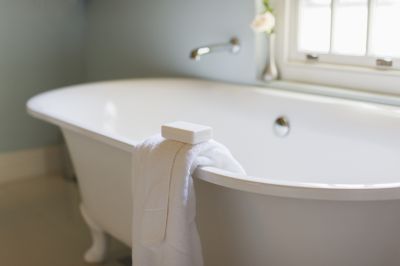Top Choices For Reliable Tub Liner Installation Equipment And Supplies
Equip yourself with the most recommended products that ensure a smooth, professional-looking tub liner upgrade.
 Products for tub liner installations encompass a wide range of materials and accessories designed to enhance the durability, appearance, and functionality of bathtubs. These products are essential for both renovation projects and repairs, providing a protective barrier that can prevent damage and extend the lifespan of the tub. When selecting products for tub liner installation, it is important to consider factors such as compatibility with existing fixtures, ease of application, and the type of material that best suits the intended use.
Products for tub liner installations encompass a wide range of materials and accessories designed to enhance the durability, appearance, and functionality of bathtubs. These products are essential for both renovation projects and repairs, providing a protective barrier that can prevent damage and extend the lifespan of the tub. When selecting products for tub liner installation, it is important to consider factors such as compatibility with existing fixtures, ease of application, and the type of material that best suits the intended use.
Top Overall Option
Acrylic Tub Liner Kit
An acrylic tub liner kit offers a versatile and durable solution for upgrading or repairing existing bathtubs. These kits typically include a pre-measured acrylic liner, adhesives, and necessary tools for installation. Known for their smooth finish and resistance to stains and scratches, acrylic liners can provide an attractive, long-lasting surface that enhances the overall appearance of the bathroom. Proper application and preparation are essential to ensure a secure fit and optimal performance over time.
Types of Products For Tub Liner Installations
Acrylic Tub Liners
Flexible and lightweight, acrylic liners are popular for their smooth finish and ease of installation.
PVC Tub Liners
PVC liners are known for their durability and resistance to moisture, making them suitable for long-term use.
Composite Resin Liners
Composite resin options offer strength and resistance to staining and scratching.
Gelcoat Coatings
Applied as a surface layer, gelcoat coatings can restore the appearance of older tubs.
Reinforcement Strips
Used to strengthen seams and edges, ensuring a secure fit and preventing leaks.
Tub Liner Adhesives
Specialized adhesives are essential for bonding liners securely to existing surfaces.
Sealing Caulks
Caulks help seal joints and edges, preventing water infiltration and mold growth.
Prep and Cleaning Solutions
These products prepare the tub surface for optimal adhesion and installation.
Liner Removal Tools
Tools designed for safely removing old or damaged liners without damaging the tub.
Tub Repair Patches
Used for patching minor cracks or chips before liner installation.
Flexible Sealants
Sealants that accommodate slight movements and prevent leaks around the liner edges.
Popular Choices
A widely chosen option for its smooth surface and ease of maintenance.
Favored for their durability and resistance to moisture and staining.
Selected for their strength and long-term resilience.
Often used to restore the look of older tubs with minimal removal.
Popular for reinforcing seams and edges during installation.
Essential for ensuring a secure bond between liner and tub surface.
Commonly used for sealing joints and preventing water leaks.
Important for preparing surfaces for optimal adhesion.
Helpful for safely removing outdated or damaged liners.
Useful for minor repairs before liner application.
Popular for sealing around edges and preventing leaks.
Tub liners are typically made from durable materials like acrylic, PVC, or composite resins, each offering different benefits in terms of thickness, flexibility, and resistance to stains or scratches. Proper preparation of the existing tub surface is crucial for ensuring a secure and long-lasting installation. This often involves cleaning, sanding, and sometimes applying a primer to improve adhesion. In addition to the liner itself, various accessories such as sealants, adhesives, and reinforcement strips are used to achieve a seamless and professional finish.
Installation of tub liners can be a straightforward process for those with some DIY experience, but many opt to hire professionals for optimal results. The right products will depend on the specific dimensions and condition of the existing tub, as well as personal preferences for aesthetics and maintenance. Investing in high-quality products can help prevent issues like leaks, warping, or mold growth, which can compromise the integrity of the installation over time. Overall, selecting the right combination of products is key to ensuring a durable, attractive, and functional tub liner setup.
Key Buying Considerations
- Material compatibility with existing tub surface
- Thickness and flexibility of the liner for a proper fit
- Ease of installation, especially for DIY projects
- Adhesive and sealant quality for long-term durability
- Resistance to stains, scratches, and mold growth
- Availability of professional installation services if needed
- Compatibility with existing fixtures and fittings
- Ease of cleaning and maintenance after installation
- Warranty or guarantee offered by the manufacturer
- Size and dimensions matching your bathtub
- Preparation requirements for the existing tub
- Type of surface finish desired (glossy, matte, textured)
- Cost considerations relative to quality and features
- Availability of accessories like reinforcement strips and repair patches
- Customer reviews and feedback on product performance
